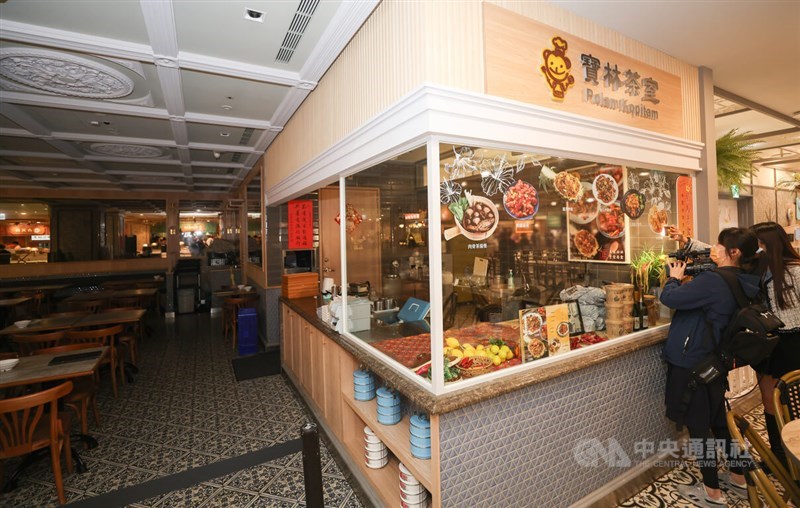
Taipei, April 7 (CNA) A toxin suspected as the culprit of a lethal food poisoning outbreak in a Taipei restaurant has been detected in the feces of a chef from the Malaysian restaurant chain Polam Kopitiam's branch in Taipei's Xinyi District, Deputy Health Minister Victor Wang (王必勝) said Saturday.
The toxin -- Bongkrekic acid -- was found in samples collected from the chef's feces on March 27, according to a Facebook post made by Wang on Saturday evening.
Earlier, samples collected from that chef's hands on March 24 also tested positive for Bongkrekic acid, which can be fatal to humans even in minute quantities, with consumption of as little as one milligram.
The toxin was found in most of the patients in this food poisoning outbreak.
As of 5:30 p.m. Saturday, out of the 34 people who ate at the Xinyi restaurant between March 18 and 24 and reported falling ill, two have died and seven individuals remain hospitalized, with four of them in critical condition in intensive care units.
The remaining 25 are recuperating at home, according to the Ministry of Health and Welfare (MOHW).
Q&A/Four things to know about Bongkrekic acid
March 30: 2 conditions required for Bongkrekic acid to become lethal: Doctor
Wang said that the chef, whose health condition is normal, underwent blood and urine tests for Bongkrekic acid on Friday and the results returned negative. He speculated that the chef might not have directly eaten the food contaminated with the toxin but ingested a trace amount of it, which might have already been metabolized in his body.
Wang explained that the toxin could have originated from contamination on the chef's hands, likely acquired through contact with contaminated food during the cooking process.
The positive result of the fecal test might also possibly be caused by contamination during the fecal sampling performed by the chef himself, Wang added.
Wang also stated that 14 environmental samples collected from surfaces at the chef's home, such as door handles and a washbasin, on March 30 returned negative results for Burkholderia gladioli, a bacterium known to produce Bongkrekic acid.
To "look for the bacterium that is the key to the incident," Wang said that MOHW inspectors visited two other locations where the chef had stayed on April 4. They respectively collected 12 and 15 environmental samples to test for Burkholderia gladioli, he said, without specifying when the results will be available.
Wang reiterated that the food poisoning outbreak was confined to the Xinyi branch and occurred between March 19 and 24, with flat rice noodles remaining the primary suspect for contamination with the toxin.
According to MOHW data, among the 34 affected individuals, 32 of them tested positive for Bongkrekic acid, while one individual who consumed noodles on March 18 but not flat rice noodles like the rest of the group between March 19 and 24, tested negative for the toxin.
The remaining person is still undergoing testing, the data indicated.
Related News
April 3: DNA tests to be used for toxic bacteria identification: Deputy minister
April 2: Bongkrekic acid found in restaurant hit by food poisoning outbreak
April 1: No toxin found in samples from restaurant in food poisoning incident
March 29: Owner of restaurant chain at center of food poisoning outbreak apologizes
March 29: Bongkrekic acid found in 8 food poisoning cases; none in food samples
March 27: Suspected food poisoning outbreak in Taipei restaurant leaves one dead
Focus Taiwan's coverage of food poinsoning incident in Taipei
- Society
Thousands of Muslims gather across Taiwan for Eid al-Fitr prayers
04/10/2024 05:13 PM - Politics
New Cabinet to respond to domestic, global challenges: Lai
04/10/2024 04:55 PM - Society
Electronic pet ID card launched by agriculture ministry
04/10/2024 04:51 PM - Business
U.S. dollar closes lower on Taipei forex market
04/10/2024 04:11 PM - Business
TSMC reports highest sales for Q1
04/10/2024 03:52 PM